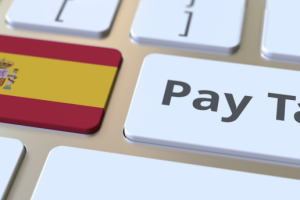Italy: Law by Decree No.127/2021 and the “Green Pass” requirements for public and private employment
1 – A quick summary
The newly published Law by Decree No. 127/2021 is aimed at ensuring a safer workplace for both public and private employees during the ongoing COVID-19 pandemic through the use of the green pass certificate (i.e. a certificate proving that the carrier is Covid-free) described under the previous Law by Decree No. 52/2021, recently converted by the Law No. 87/2021 (the so-called “Riaperture” Decree).
This improvement of workplace safety will be achieved with a thorough screening system to be carried out by employers from October 15, 2021 to December 31, 2021, the latter being the day when the emergency state is currently expected to end.
More specifically, all private and public employers are to define, by October 15, 2021, the operational verification procedures for the purpose of checking, including on a random basis, that their employees, before entering the workplace, possess the green pass. The above-mentioned employers will also be required, once again by October 15, 2021, to identify, with a formal act, the individuals who will be responsible for the verification of violations of these obligations.
Furthermore, from October 15, 2021 to December 31, 2021, employees without the green pass will be prohibited from accessing the workplace and will be considered unexcused absentees with no pay until they provide the green pass or, if earlier, until December 31, 2021, although they will keep their job for the whole duration of the ban and will not suffer any disciplinary action for this conduct.
The Italian Government has already provided a specially designed mobile app, called “VerificaC19”, that employers (as well as their appointed controllers) can use to check if an employee has a valid green pass before allowing him/her at the workplace. The VerificaC19 app can be downloaded at https://www.dgc.gov.it/web/app.html.
2 – Private Employers
Pursuant to Law by Decree No. 127/2021, the obligation to possess and display the green pass before entering the workplace, when requested by the employer, shall apply "to anyone who carries out a work activity in the private sector". This includes those who, for whatever reason aside from an actual employment contract with the company, carry out their work at the company premises, even if they do so on the basis of an external contract, training, voluntary work, or internship.
It is not yet clear if this obligation will also affect self-employed professionals working from home, as well as smart-working employees, because Law by Decree No. 127/2021 simply calls for the green pass requirement to access “places in which said activity [i.e., the work activity in the private sector] is carried out”. In other words, the home of these kind of workers would need to be qualified as “workplace” to extend the green pass obligation to them, but it must be noted that the safety reasons behind the requirement may be considered inapplicable to a domestic context.
All of this being said, those who were already not subject to the vaccination campaign because of an appropriate certified medical condition will also be exempted from the green pass requirement.
Regarding the green pass requirement for workers who carry out their activities with an external contract, the green pass check will be doubled, because these workers’ compliance with such obligation will be verified by both the company where they will carry out their duties as well as their respective employer. For example, in the case of a temporary worker, the verification will be carried out by both the temporary agency and the company at which said worker is currently dispatched.
Lastly, only with respect to employers with less than 15 employees, in case a suspended employee is temporarily replaced with a fixed-term employee, the suspension will last until the end of the fixed-term employment contract (but for maximum 10 days, renewable only once), even if meanwhile the absent employee obtains the green pass.
3 – Public Employers
Pursuant to the Law by Decree No. 127/2021, the obligation to possess and display the green pass – when requested by the employer – before entering the workplaces will also be applicable to public administration personnel, including the constitutional bodies.
This obligation will follow the same rules described above for the private counterparts, with the sole exception of the special rules provided for employers with less than 15 employees.
4 – Employers duties and penalties
To put in bullet points what the new Law by Decree No. 127/2021 requires from private and public employers:
• by October 15, 2021, all employers will define the operating procedures that will be adopted to check, even on a sample basis, that their employees have the green pass; if possible, this check shall be executed before allowing the employee to access the workplace;
• from October 15 to December 31, 2021, all employers will carry out green pass checks as per the above-mentioned procedure;
• by October 15, 2021, employers will also need to identify, by a formal deed, those in charge of verifying the possible violations of the green pass obligation;
• from October 15 to December 31, 2021, in case an employee needs to be considered as unexcused absentee because he/she has not produced the green pass, the employer shall inform immediately said worker of the situation.
Employers who fail either to define the green pass checking procedures by October 15, or to check if their employees have the green pass from October 15 to December 31, 2021, will receive an administrative sanction requiring the payment of a sum ranging from 400 to 1,000 euros.
5 – Employees duties and penalties
To put in bullet points what the new Law by Decree No. 127/2021 requires from private employees:
• from October 15 to December 31, 2021, all employees must possess the green pass certificate to access the workplace;
• from October 15 to December 31, 2021, all employees must show their green pass certificate when requested by their employer to access the workplace.
An employee who fails to show his/her green pass certificate will not be allowed to access the workplace and will be considered an “unexcused absentee”, with no right to any pay until he/she can provide his/her green pass certificate or, if earlier, December 31, 2021. This absence, however, will result in no disciplinary consequences for the employee in question.
An employee who enters his/her workplace without the green pass will be punished with an administrative sanction requiring the payment of a sum ranging from 600 to 1,500 euros.
6 – Until October 15, 2021
Pursuant to article 2087 of the Italian Civil Code, employers must do everything possible to protect the health and safety of their employees, and this includes ensuring that employees who work at a common, shared location (i.e. an office, a store, etc.) adopt all the best possible measures to avoid spreading COVID among them, such as being vaccinated.
This means that in the time before the green pass obligations become effective, an employer can decide to “open” the workplace only to vaccinated employees on the ground that by doing so, they will be safer. It must be noted, however, that currently no employer can ask or verify in any way if an employee is vaccinated against Covid-19 other than the company doctor (and the doctor cannot disclose such info to the employer).
This being said, it must also be noted that Italian employment courts have already deemed lawful the suspension from work, without pay, of employees who openly refuse to be vaccinated, if they cannot be assigned to other duties in which they would pose no “COVID-threat” to their colleagues.
7 – Employees’ privacy and sensitive data
Regarding employees’ vaccination data, employers cannot currently receive nor treat this kind of data, even with the relevant employee’s consent, as only the company doctor is allowed to do so and cannot disclose this kind of information to the employer.
Starting from October 15 and until December 31, 2021, employers will necessarily obtain this data during their “green pass checks” and while, as of today, there is no specific regulation on this matter, it is safe to assume that employers will be required to treat it just like any other “sensitive data” that they have already acquired during the employment relationship (i.e., genetic and biometric data or data concerning medical procedures).
By Federico Torzo
Ughi e Nunziante Studio Legale
Milan, Italy






